Amyloidosis with pulmonary involvement is rare and occurs in primary or secondary forms (e.g., with connective tissue disease). HRCT can be completely normal, but occasionally nodules, reticular pattern and consolidation may occur. Calcification of the lung parenchyma is common.
Month: January 2020
Alveolar Microlithiasis
Alveolar microlithiasis is a very rare disease. On CT (Figure 135) diffuse micronodular calcifications with a sand-like appearance can be seen in the basal-dorsal regions. Typically, the condition exhibits a poor correlation between radiographic findings and symptoms, often the patient appears worse on CT than clinically.
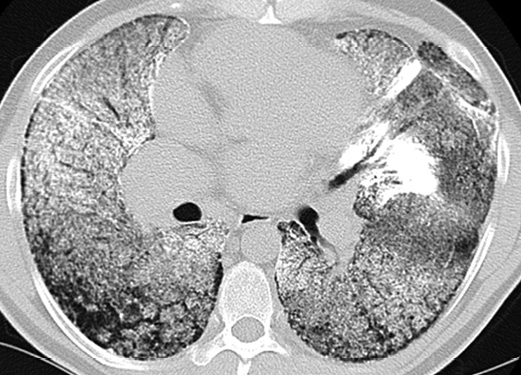
Lipoid Pneumonia
Exogenous lipoid pneumonia occurs following inhalation of mineral oils or aspiration of certain animal or vegetable oils. Fatty acids accumulate in the lung parenchyma resulting in inflammation, which can cause focal fibrosis. Endogenous (idiopathic) lipoid pneumonia also occurs with accumulation of lipids in the alveoli. HRCT in both forms show a mixture of ground-glass, crazy paving and consolidation. Distribution may be unilateral or bilateral, and sometimes the condition remains relatively unchanged. There is no cure. Lipoid pneumonia is a rare disease and diagnosis is confirmed by biopsy (Figures 33, 134).
Figure 134. A and B. Middle-aged woman who developed biopsy-verified lipoid pneumonia. The changes consist of ground-glass and crazy paving with elements of consolidation. The CT-findings remained relatively unchanged for several years. This was diagnosed as endogenous lipoid pneumonia.
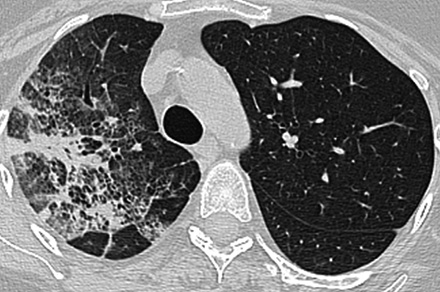
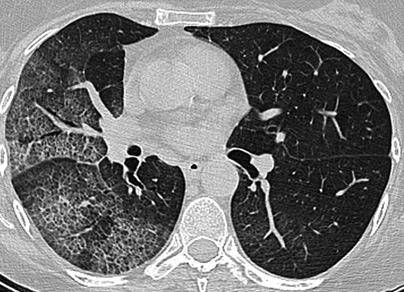
Figure 134. A and B. Middle-aged woman who developed biopsy-verified lipoid pneumonia. The changes consist of ground-glass and crazy paving with elements of consolidation. The CT-findings remained relatively unchanged for several years. This was diagnosed as endogenous lipoid pneumonia.
Alveolar Proteinosis
Alveolar proteinosis (Figures 27, 133) is a rare lung disorder, whereby the alveoli are filled with protein-rich secretions (surfactant). Treatment, in patients suffering from persistent respiratory symptoms, involves repeated bronchioalveolar lavage (BAL). There is no curative treatment. The CT picture, involving widespread crazy paving, is highly characteristic.
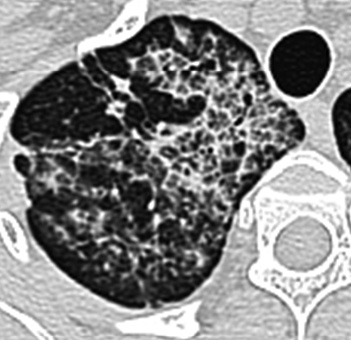
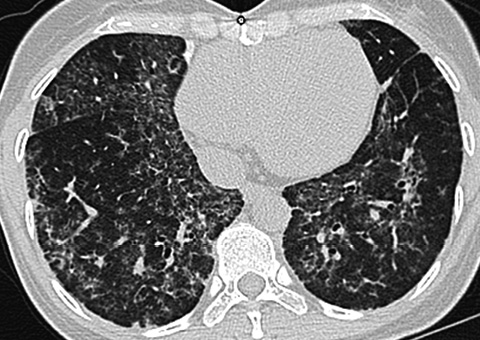
Figure 133. 40-year-old man with long-standing alveolar proteinosis. A and B show typical crazy paving (ground-glass and extensive reticular pattern). Note the absence of fibrosis.